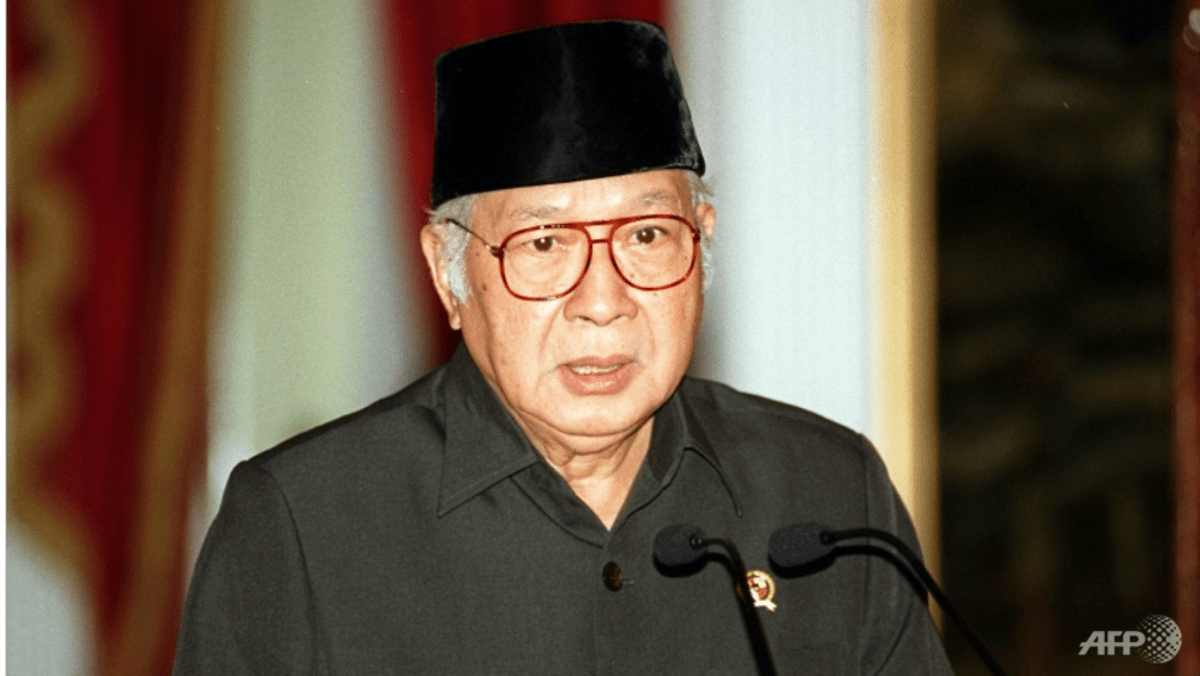SUHARTO’S APPEAL
Suharto’s appeal, despite his authoritarianism, is not new. During the 2014 elections, I travelled to his hometown in Kemusuk in Central Java, as millions prepared to directly elect only their third president since the transition from dictatorship to democracy began.
It was hard to miss the love that many still have for the man they affectionately call “the father of the nation”. At the time, T-shirts featuring his face were being sold, with slogans in Javanese saying: “It was better in my time, wasn’t it?”
This desire for a return to perceived stability is not unusual, but it is worrying given Indonesia’s importance in regional power dynamics.
It’s the world’s most populous Muslim country, and Southeast Asia’s largest economy. It is a critical partner for the United States in its ambitions to curtail China’s rise, and is also a valuable modern Muslim ally. A creep toward authoritarianism, however small, must be avoided at all cost.
Indonesians look at their young democracy differently from the Western world, which has traditionally prioritised aspects like freedom of the press and checks and balances in government, argues Deasy Simandjuntak, visiting researcher at the Singapore-based ISEAS-Yusof Ishak Institute.
They look at the government’s performance, and whether policy aims have been fulfilled. Social welfare and economic development trump democracy and civil rights – which is understandable when you look at the size and scale of the country.
It is massive: From west to east it spans the distance between London and Baghdad, with three time zones and hundreds of different ethnic groups and languages. Even in one of the richest parts of the country – the capital Jakarta – very basic needs, like putting food on the table, can often be hard to meet.
These levels of hardship provide an explanation for the rise in popularity of one of the presidential candidates in this election, Prabowo Subianto. He’s a former special-forces commander with outsized influence during the New Order and was dishonorably discharged in the aftermath of its collapse for alleged human rights violations. For a time, he was Suharto’s son-in-law.
Prabowo is offering economic stability and a continuation of the rule under the current leader Joko Widodo, known as Jokowi. Prabowo is leading in the polls, although early indications suggest a run-off is likely.
Standing against him are two former governors – Anies Baswedan of Jakarta and Ganjar Pranowo of Central Java – who have yet to create much traction with the public.
#Commentary #Late #Indonesian #president #Suharto #unwelcome #comeback #deepfake







